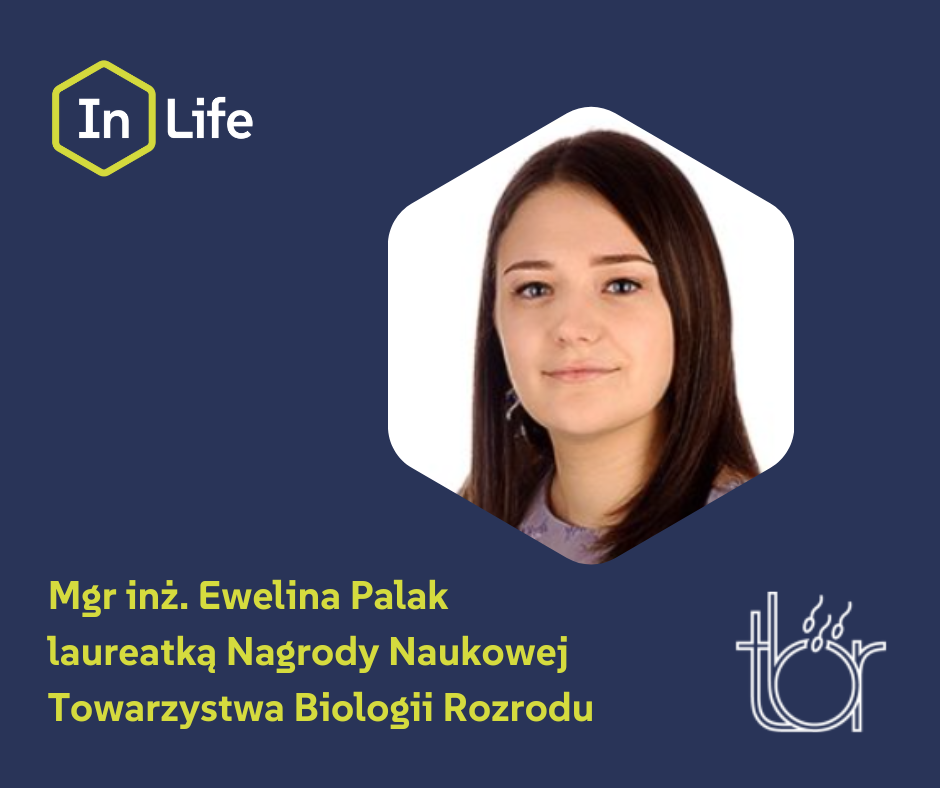
The groundbreaking nature of the research and its significant contribution to advancing knowledge about the extra-gonadal role of follicle-stimulating hormone (FSH), a hormone that plays a significant role in regulating reproductive functions – the Scientific Award of the Society for Reproductive Biology for the best scientific paper published in 2024 was awarded to Ewelina Palak, MSc, from the Biology and Pathology of Human Reproduction Team at our Institute.
As we read further in the justification of the TBR Executive Board: The results obtained challenge the existing beliefs about the involvement of FSH-FSHR signaling in the regulation of uterine muscle contractility during pregnancy, as well as in the functioning of adipose tissue. These findings may be of significant importance in the future design of effective hormonal therapies using FSH.
The award-winning paper, entitled „Revisiting the follicle-stimulation hormone receptor expression and function in human myometrium and adipose tissue” was published last December in the prestigious journal Molecular Medicine (Mol Med. 2024 Dec 4;30(1):241).
– Follicle-stimulating hormone (FSH) is a hormone that plays a key role in sexual development and the regulation of reproductive functions in both women and men. In women, FSH stimulates the growth and maturation of Graafian follicles in the ovaries, and its concentration is an important indicator in the diagnosis of infertility, menstrual disorders, assessment of ovarian reserve and in the diagnosis of menopause. Both too low and too high FSH concentrations may indicate gonadal dysfunction. The action of FSH is possible thanks to the presence of its receptor (FSHR), whose proper functioning is crucial for the action of FSH in reproductive biology – explains Ewelina Palak, MSc.
Laureate is a biotechnologist, a graduate of the Warsaw University of Technology. She works in the Biology and Pathology of Human Reproduction Team at our Institute. Her research interests focus on the functional role of the follicle-stimulating hormone receptor and the effect of FSH on uterine muscle and adipose tissue. She conducts research on the molecular mechanisms occurring in the female reproductive system, with particular emphasis on polycystic ovary syndrome (PCOS).
SOCIETY FOR REPRODUCTIVE BIOLOGY (TOWARZYSTWO BIOLOGII ROZRODU – TBR)
TBR was established in 1998. Currently, it has eight branches (Białystok, Lublin, Poznań, Szczecin, Kraków, Olsztyn, Wrocław, and Warsaw). The aim of the Society is to initiate activities leading to the development of sciences related to human and animal reproductive biology.
More information on the TBR website (available in Polish): tbr.pan.olsztyn.pl.
Congratulations!